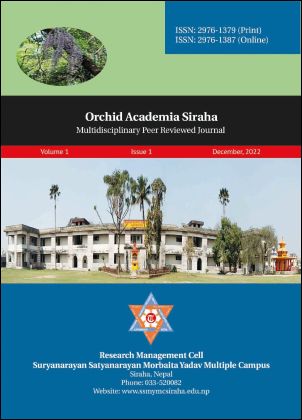Michel Foucault's Theory and its Educational Implication for Science Learning in the Nepalese Context
DOI:
https://doi.org/10.3126/oas.v1i1.52148Keywords:
discourse, critical theory, educational implication, philosophical roots, social theoryAbstract
This paper focuses on the concept of discourse, power, reflective practise and construction of knowledge and its importance for non-positivist research in the postcolonial era to empower learners. At the same time, different concepts of discourse, power, reflective practise and construction of knowledge are used to recognise their choice clearly. This paper, therefore, aims to clarify the conceptual basis of working with discourses, power, reflective practises and knowledge construction based on the philosophical roots of social theory in the research in the present context of science teaching Foucault theory can be applied to develop the capacity to critique their traditional materialistic reality learning approaches and empower science students to learn science through discourse, seminar, fieldwork and project work to retain the potential for reflectivity and critical argument; and reconfigure being contextual of Nepalese scenario.
Downloads
Downloads
Published
How to Cite
Issue
Section
License
Copyright (c) 2022 Research Management Cell (RMC), Suryanarayan Satyanarayan Morbaita Yadav Multiple Campus (SSMYMC) Siraha

This work is licensed under a Creative Commons Attribution 4.0 International License.
This license allows reusers to distribute, remix, adapt, and build upon the material in any medium or format, so long as attribution is given to the creator. The license allows for commercial use.




